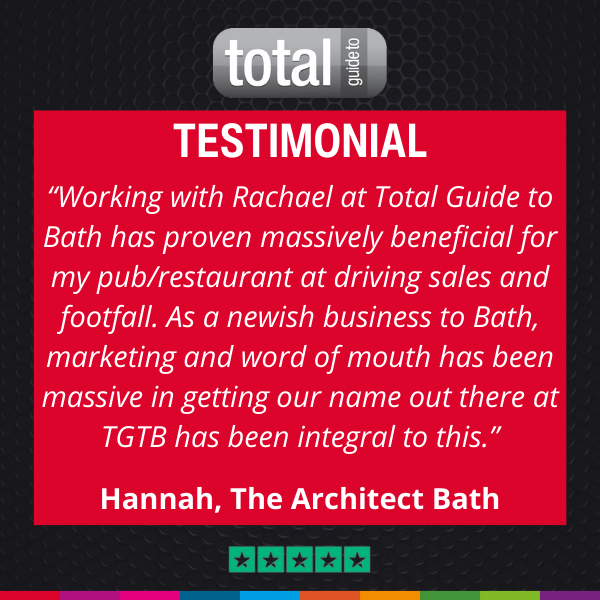In case you missed it see what’s in this section
Let's Talk
Paving The Way For A Successful Venture Into Healthcare: A Guide
With an ageing population fuelling unprecedented demand for services, career opportunities within healthcare are ever-expanding.
It’s no secret that healthcare services in the UK have been put through the wringer over the last several years. It’s been a brutally tough period thanks to the COVID-19 pandemic, and there has been a lot written about staff shortages following Brexit and subsequent immigration policies. You don’t need to see the staff striking to know that this is a sector that needs all the help that it can get. However, transitioning into this complex, highly regulated sector as an outsider can seem daunting without contacts or experience navigating its politics.
This article equips aspiring clinicians, technologists, change-makers and leaders with insider strategies for successfully permeating boundaries to deliver healthcare innovation and enhancing patient outcomes. Follow these key steps below to plug knowledge gaps, gain vital exposure and ultimately secure that fulfilling medical role.
Immerse Yourself In The Healthcare Landscape
Before applying for roles, dedicating time to understanding this multifaceted industry is essential. Start by tracking major Government policy launches, commissioning priorities lists, and regulator agenda focuses over recent years. Technology has been changing the landscape just as quickly as government policies have too, so it will definitely be worth looking at this area in particular. Monitor key themes and challenges rising to dominance like service sustainability, health inequalities and social care integration.
Equally, follow influencers across medical bodies, royal colleges and trusts pioneering service transformation initiatives. Note innovative programmes trialling solutions to issues like waiting times backlogs, prevention models and digitally-powered care coordination. This landscape immersion helps identify quick-win opportunities to position personal offerings solving key strategic issues.
Reach out to these innovator contacts through warm introductory emails asking for short advice calls. Remember that the worst thing that can happen is that someone will simply tell you that they don’t have time to get back in touch with you right now! Build relationships whilst gleaning intelligence on change implementation successes and barriers. Understanding historical context provides invaluable perspective for presenting viable solutions not tried before.
Online Courses Can Be A Real Difference Maker
Whilst work shadowing grants unparalleled observational insights, exploring accredited courses delivers an efficient injection of healthcare specifics too. From clinical terminology to service design principles, reputable providers offer modules building initial competence to engage stakeholders authentically.
For technologists especially, structured curriculum programmes equip them with must-have expertise like regulation compliance, ethics governance and commercialisation considerations when prototyping healthcare products.
Elsewhere, Leadership Academies are gaining traction nurturing operational management capabilities for clinicians aspiring to shape systemic transformations. Here participants undergo intense case study analyses and simulated scenarios improving key decision-making, people management and communication skills.
Note, however, that pure theory alone cannot accelerate careers. Ensure learnings get implemented for employers through subsequent projects or secondments to demonstrate abilities to deliver impactful change. For example, if you want to learn about healthcare management, you need a course that is going to give you everything that you need to know to launch your career. MSC healthcare management courses can be found and can even be done online. You can find out more about the masters in healthcare management at Queen Margaret University by visiting online.qmu.ac.uk
Volunteer Strategically To Build Credibility
Beyond knowledge gathering, volunteering with healthcare providers plugs visibility gaps for aspiring applicants lacking the requisite background. However, simply checking beds or making tea won’t cut it. Be selective with placements enabling genuine skills application plus networking with decision-makers.
For example, technologists might offer user-centred design support for hospital eHealth projects like patient portals or remote monitoring apps. Here you could provide expertise in running co-creation workshops with staff/service users to fix access issues. These human-centred insights prove invaluable in steering usable solutions and enhancing adoption and outcomes.
Equally, experienced project or people managers could pursue opportunities like NHS board interim roles. Here you directly tackle service innovation priorities - maybe assessing workforce retention techniques or running point on EMR integrations across primary and secondary care.
Strategic volunteering allows for showcasing transferable strengths applied effectively to meet healthcare objectives. Glean referee testimonials from clinical leads to strengthen later job applications.
Secure High-Profile Secondments
Once you’re equipped with fundamentals, pursuing competitive temporary appointments across pioneering providers accelerates exposure further. Keep building a reputation by applying for selective placements like the NHS Graduate Management Training Scheme or HEE’s Ready Now initiative.
These exclusive programmes immerse emerging talent into tailored placements across various trusts to gain wider system-level awareness. Absorb everything possible working alongside well-networked transformation leads before returning to permanent teams with insider status and knowledge.
Equally, directly arrange fixed-term secondments into innovation hubs experimenting with emerging technologies. For example, work alongside clinicians trialling robotic surgery systems, virtual wards, or wearable patient monitoring. This fuels technical comprehension applied in your substantive role later. Likewise, collaborating with NHS Digital during new Health IT systems rollout like GP online appointment bookings successively builds stakeholder management expertise for permanent appointments. It absolutely bears repeating that digital skills are going to be more and more important in the years ahead. Taking the time to learn now will stand you in good stead.
Put Yourself Forward As A Thought Leader
Executive teams want more than task-focused delivery managers. They seek forward-thinking, strategic influencers conveying innovation opportunities aligned to Trust objectives. Place yourself firmly on their radar by showcasing cogent viewpoints at external conferences, committees, and regional meetings.
Submit speaker pitches to industry events like HFMA’s Finance Forum addressing priority topics like data-driven productivity enhancements or diversifying income streams beyond squeezed public funding streams. Develop unique perspectives addressing financial stability through partnerships, training provision and tech exploitation.
Equally, apply for advisory groups guiding major Government-backed programmes like social care reform developments or the UK Life Sciences Vision. This positions you consulting on seminal policies set to shape future NHS priorities and resourcing allocation.
Authoring guest articles for clinical journals like the BMJ or podcast interviews also magnifies thought leadership reach exponentially. Ultimately, ensure commentary consistently bonds back to tackling major healthcare challenges. This conveys passion and value-aligned vision required to influence at senior levels. It might sound a little corny, but it is so important to make sure that you’re getting your name out there. People will be Googling you and if you have a digital footprint then you are more likely to stand out!
Leverage Digital Visibility & Micro-Credentialling
Lastly, tap modern visibility enhancers like social media and digital credentials to reinforce positioning as a subject matter expert. For example, share commentary around emerging research or best practice case studies on LinkedIn whilst gathering specialist recommendations. Likewise, compile bespoke ePortfolios featuring multimedia showcasing healthcare improvement project impacts.
Consider gathering recognisable micro-credentials like badges, nano degrees, and credits from accredited institutions like The King’s Fund, Johns Hopkins Medical School or the Royal Society of Medicine. These verification capabilities gain industry credibility that opens doors to new opportunities.
Attaining that sought-after healthcare role without conventional experience paths undoubtedly requires proactivity. But by investing to actively build healthcare immersion, credibility through savvy exposure and consistently conveying aligned thought leadership, unorthodox entrants can successfully permeate boundaries. Follow the above guide to optimise positioning and pave the way for an incredibly fulfilling industry transition!
Weather in Bath
Listings


















